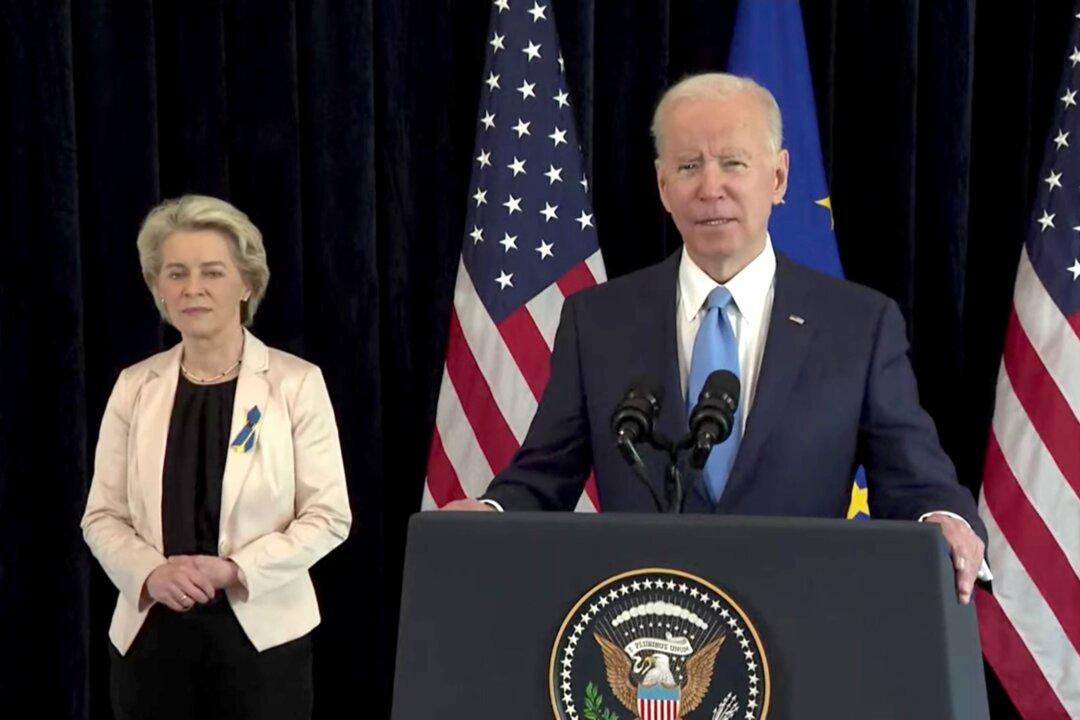The United States and the European Union have struck a deal to reduce Europe’s dependence on Russian fossil fuels, including a commitment for the United States to provide an additional 15 billion cubic meters of liquefied natural gas (LNG) to E.U. markets this year alone.
President Joe Biden and European Commission President Ursula von der Leyen announced the new initiative at a joint press conference in Brussels, Belgium, on Friday.





